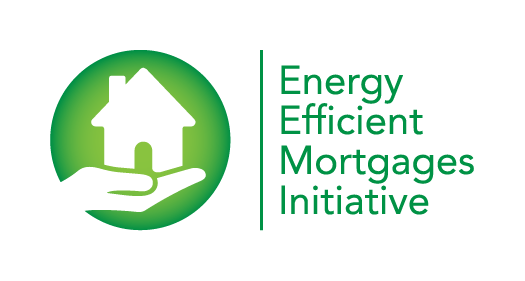
Banks to help tackle climate related risks and safeguard financial stability
The days when energy efficient finance was only a vision upheld by few are numbered. Once seen as a niche activity, green and energy efficiency finance is now shaping the international agenda, and green/energy efficiency financial products are scaling-up across industries and capital markets.
The political drive for green finance has pushed forward the development of a green financial market with banks increasingly allocating billions of euros to green and energy efficiency investments. Even though the political will for energy efficiency finance has never been bigger than it is today, the present lack of standardised large-scale energy efficient asset datasets hampers the development of a true energy efficient financial market by hindering transparency, viability and comprehensive risk analysis, elements which would otherwise act as a driver for further implementation and mobilisation of private bank finance for energy efficient investments.
Though the move to a more low-carbon economy has unquestionably begun, the transformation cannot be delivered by politicians alone. Looking at capital markets, banks are uniquely placed to play a central role by facilitating energy efficiency considerations in the process of purchase/re-mortgage of homes and buildings. Indeed, with buildings representing 40% of the total energy consumption in the EU alone, energy efficient mortgage financing is a top European political priority.
In response, the EMF-ECBC, together with Hypoport, European DataWarehouse, Ca’ Foscari University, CRIF and TXS, has launched a market-led initiative to address the current lack of standardisation in terms of datasets by delivering a framework for standardisation of technical and financial data gathering, with the aim of stimulating energy efficient financing.
The project, which is known as the Energy efficient Data Protocol and Portal (EeDaPP) Initiative, aims to design and deliver a market-led protocol, which will enable the large-scale recording of data relating to energy efficient mortgage assets (loan-by-loan), via a standardised reporting template. The data will be accessed by way of a common, centralised portal, allowing for continuous tracking of the performance of the energy efficient mortgage assets, thereby also facilitating the tagging of such assets for the purposes of energy efficient bond issuance.
In parallel with the political agenda, financial markets and regulators are beginning to recognise that environmental degradation can pose a risk to the financial system with climate changes impacting the value and pricing of carbon intensive assets. Banks can help address climate related risks going forward and safeguard financial stability, with standardised energy effect data being incorporated into risk models, deployed for the purposes of mortgage affordability calculations, used for investor due diligence and accessed by rating agencies and other relevant market participants. The gathering of standardised data records will help to reduce uncertainty about the financial performance of energy efficient assets and their viability, which, in turn, will mobilise private capital into energy efficient investments, strongly supporting the EU political agenda. In doing so, the Initiative also has the potential to be a trigger for financial stability by shedding light on the most effective way of managing climate related risks.
The technical and financial datasets gathered under the EeDaPP Initiative will allow for the linking between energy efficient features of a building, its value and the loan performance, thereby creating a better understanding of the impact of energy efficiency on borrowers’ probability of default (PD) and on loss-given default (LGD). The aim is to identify and demonstrate that energy efficient mortgage assets can be identified for preferential capital treatment based on large-scale standardised data and correlation analysis.
In this way, EeDaPP will build on and complement the Energy efficiency Mortgages Action Plan (EeMAP) Initiative, launched by the EMF-ECBC and its Consortium Partners earlier this year with the aim of creating a standardised mortgage product according to which building owners are incentivised to improve the energy efficiency of their buildings by way of preferential financing conditions linked to the mortgage. Standardised data collection and reporting will also be at the heart of the forthcoming EeMAP Pilot Phase, during which banks will originate energy efficient mortgage products and in which all financial institutions under the EMF-ECBC umbrella are invited to play an active role.
Earlier this year, the EeDaPP Initiative received support from the European Commission in the form of Horizon 2020 funding. In the context of the Horizon 2020 programme, the EeDaPP Consortium will undertake five “operational” Work Packages, each with a clear set of deliverables: (1) identification and summary of market best practices within data systems; (2) definition of energy efficiency reporting criteria; (3) design and delivery of standardised data protocol and common centralised portal; (4) data and substantiation correlation analysis; and (5) roadmap for system integration.
The EeDaPP Initiative will be officially launched at an opening event in H1 2018. More information will follow in due course.
EeDaPP- Energy efficiency Data Protocol and Portal – is an initiative by the European Mortgage Federation – European Covered Bond Council (EMF-ECBC), European DataWarehouse, CRIF, Hypoport, TXS GmbH, University Ca’ Foscari Venezia and Johann Wolfgang Goethe-Universitat Frankfurt am Main.
Sitemap
Copyright © Energy Efficient Mortgages Initiative


The project DeliverEEM has received funding from the European Union’s LIFE 2023 programme under grant agreement No.101167431. The EeMAP, EeDaPP, EeMMIP projects have received funding from the European Union’s Horizon 2020 research and innovation programme under grant agreements No. 746205, No. 784979 and No. 894117 respectively
Privacy Overview
| Cookie | Duration | Description |
|---|---|---|
| cookielawinfo-checkbox-analytics | 11 months | This cookie is set by GDPR Cookie Consent plugin. The cookie is used to store the user consent for the cookies in the category "Analytics". |
| cookielawinfo-checkbox-functional | 11 months | The cookie is set by GDPR cookie consent to record the user consent for the cookies in the category "Functional". |
| cookielawinfo-checkbox-necessary | 11 months | This cookie is set by GDPR Cookie Consent plugin. The cookies is used to store the user consent for the cookies in the category "Necessary". |
| cookielawinfo-checkbox-others | 11 months | This cookie is set by GDPR Cookie Consent plugin. The cookie is used to store the user consent for the cookies in the category "Other. |
| cookielawinfo-checkbox-performance | 11 months | This cookie is set by GDPR Cookie Consent plugin. The cookie is used to store the user consent for the cookies in the category "Performance". |
| viewed_cookie_policy | 11 months | The cookie is set by the GDPR Cookie Consent plugin and is used to store whether or not user has consented to the use of cookies. It does not store any personal data. |

